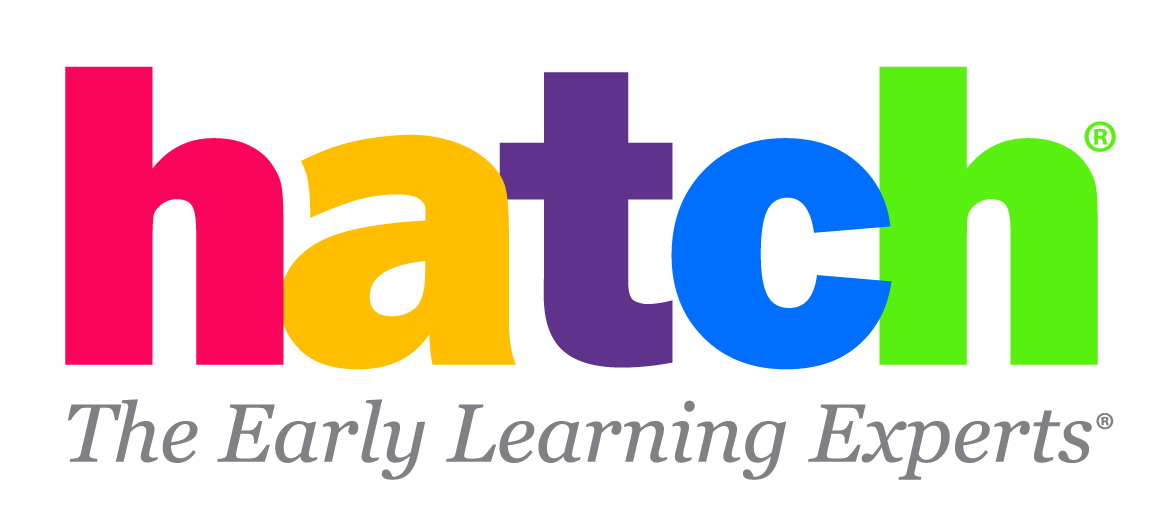As our country works together to implement practices aimed at mitigating the public health crisis caused by COVID-19, Hatch is committed to helping early childhood programs identify solutions to provide children with a high-quality early childhood education while implementing guidance from public health officials. It is important that we all implement health and safety precautions to slow the spread of COVID-19.
Early childhood programs are working quickly to identify the best ways to support children’s development and learning at home. The challenge of providing young children with high-quality, developmentally appropriate learning opportunities can be overcome with the intentional use of technology that supports distance learning while not wavering on our commitment to utilizing best practices that support development and learning.
Hatch is dedicated to providing early childhood educators and administrators with the tools and resources they need to deliver high-quality early learning to young children through distance learning. Implementing the recommended practices for distance learning with preschoolers can help early childhood programs to continue to support children’s development and learning when programs are closed. Together, we can protect public safety and ensure children still have access to developmentally appropriate experiences that set them on a path for lifelong success.
1) Deepen Family Engagement.
Family engagement is critical to ensuring children are safe, healthy, and learning during this time. For the foreseeable future, we may not see families in person, and therefore, it is important to connect with them through phone calls and digital communication.
Communicate with families one-on-one and often
Take time to connect with families one-on-one via phone calls and text messages. Aim to maintain a connection with your families on a personal level (and not only through mass communications). Schedule check-ins at times that are convenient for families. Ask families if they need assistance getting connected to health, nutrition, or social services. Also, take time to ask families about their child’s development and learning. Write down what you learn and use it as observation notes for the child’s portfolio.
Support families in setting up a home environment and daily schedule
As early childhood educators, we know the value of a thoughtful learning environment and daily schedule. These two powerful tools provide the foundation for the great learning experiences we provide children in our classroom. Take time to support each family in evaluating their home environment and establishing a daily schedule.
Home environments should be organized and promote independence, just like the classroom! Talk to families about creating a space for structured learning experiences and for play. Share tips on how to select and display toys, props, and other learning materials so that children have options, but not too many options. Suggest to families to rotate materials so their child’s curiosity and interest are maintained.
Establishing a daily schedule will help both children and families feel safe during this time. Teach families how to create a simple visual schedule and how to use the visual schedule with their child. This schedule should include times for self-care routines, meals, outdoor time, rest, play, and structured learning experiences.
Train families on how to use technology to support distance learning
What technology platforms will your program use to support distance learning? Will you have a video conferencing platform or an online learning platform? Will you use new communication tools or family-facing software? If so, ensure families have access to online training materials so they feel comfortable accessing these tools. When communicating with families one-on-one, ask them about their comfort level with the technology tools being used and answer any questions they may have.
2) Sustain Relationships Between Children and their School Community.
Young children learn in the context of social relationships. This includes relationships with their family, peers, and teachers. To continue supporting children’s learning and development, it is important that they are provided with opportunities to virtually connect with their school community.
Virtual Circle Time
Circle time is used to build community and promote learning and is an essential part of an early childhood classroom. Consider hosting a virtual circle time during which each child can briefly share, songs are shared, and a book is real aloud. Encourage families to participate with their child during circle time. Many video conference platforms are easy to use and are being offered for free for the time-being.
Virtual Small Groups
Brainstorm some small group experiences that you can provide virtually. Consider the use of common household materials and ways to adapt experiences so children are engaged while not physically present. This will require setting expectations and routines the first few times you implement virtual small groups. Utilize virtual small groups to continue assessing the children’s learning and development. Hatch has put together ten classroom connections that you can use as a virtual small group experience.
Weekly One-on-One Connections
Make time each week for a short phone call or video conference with the children in your classroom. Plan fun, open-ended questions to ask that promote creative thinking and launch back and forth conversations (i.e. which animal do you think is the fastest and why?; What things do you have in your home that you think might be in my home, too?; What do you see outside your window?). Establish a “good-bye” ritual to use at the end of each call.
3) Maintain Developmentally Appropriate Practices
As children transition to learning at home, it is important that we double down on our commitment to maintaining developmentally appropriate practices. Planning thoughtful and engaging instruction to be delivered by families or through technology platforms is hard work. We cannot let that be our excuse for defaulting to worksheets or rote learning (i.e. flashcards, memorization exercises, etc.). Our children deserve the same commitment to high-quality, developmentally appropriate early learning during this time. It is our job as educators and administrators to support families in implementing developmentally appropriate practices through at-home learning.
Support Families in Providing a Variety of Play Experiences
In our classrooms, we provide children a variety of play experiences that enable them to engage in different types of play. As they develop a daily schedule, help families consider how they do the same (i.e. construction play, dramatic play, creative play, etc.). Provide families a list of common household items that can be used to support different types of play.
Provide Families with Hands-on Learning Experiences
Children still need structured learning experiences that are tied to standards and learning outcomes. Provide families with the instructions and materials for delivering these experiences. Instructions should be explicit and support families in engaging their child is problem-solving and open-ended questions. Hatch has put together a series of family and classroom connections that can be provided to support families at home.
4) Use Technology Responsibly
When used responsibly and appropriately, technology can be a powerful learning tool. Setting guidelines for how and when technology is used can support programs and families in utilizing technology to support development and learning in meaningful ways.
Provide families with the knowledge and tools to select appropriate digital learning opportunities
As families use apps and other online learning platforms to support their child’s development and learning, provide them with guidelines for selecting quality apps to use. Encourage them to select apps that promote active engagement and provide experiences tied to early learning standards.
Hatch will be releasing its powerful kindergarten-readiness platform, Ignite@Home, for families to utilize for free (for a limited time). This will enable children to engage in technology-based curricular experiences that are aligned to kindergarten readiness standards while they are at home.
Use technology to foster relationships and support active learning
Encourage families to co-view and co-participate when their child is using technology. This will promote family-child relationships and can provide extra support for the child’s development and learning. Additionally, the apps and technology tools children engage with should support active learning in which the child is creating, exploring, and playing; not passively viewing.
Limit sustained engagement with technology
Technology should not be used a substitute for hands-on, active play. Children still need to spend most of their day engaged in play experiences. Technology should be used in limited amounts of time throughout the day, especially to target specific skills and provide varied learning experiences. While families may need to allow their child to engage with technology more than they normally would (as they are juggle working from home, etc.) encourage them to break-up the use of technology throughout the day. For example, rather than 60 minutes of sustained engagement, break it into four 15-minute chunks.
5) Evaluate Your Practices Regularly
As we transition to distance learning, it is important that we regularly evaluate our practices. Set-up an intentional process for checking in with colleagues, staff, and families to evaluate how distance-learning is progressing. Ask the following questions:
- Are the structures we have put in place strengthening relationships?
- Are we using best practices to guide our decisions?
- Are children learning and developing?
- What can be changed to better support families and educators so that implementation is more efficient and effective?
Hatch is here to help you and families provide high-quality early learning experiences during these challenging times. Our teams are working around the clock to develop tools and solutions so that young children receive the experiences they deserve! Check our website frequently for exciting updates and reach out to let us know how we can support you during this time. Together, we can promote public safety as we support each child’s learning and development!

